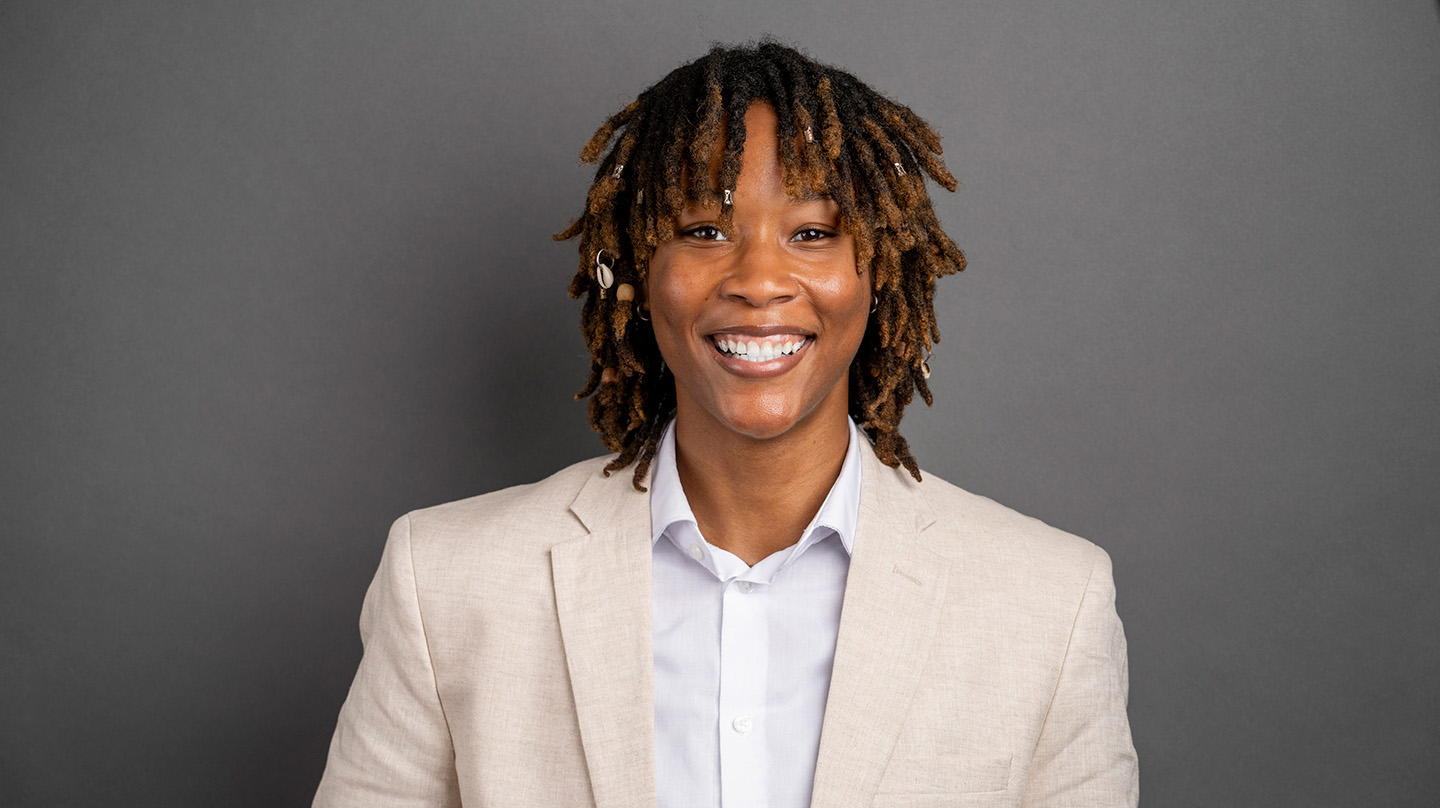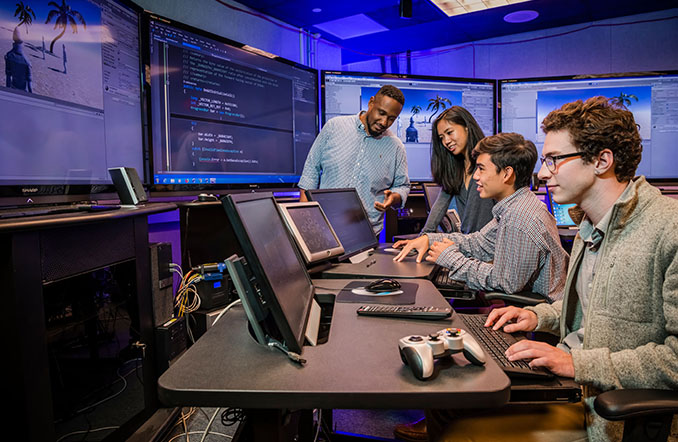News
Space Program Opportunities Inspire Johns Hopkins APL Intern to Shoot for the Stars
MaKhaila Bentil, an intern at the Johns Hopkins Applied Physics Laboratory (APL) in Laurel, Maryland, has charted a course for leadership early on in her career.
Bentil, who uses the pronouns she/her and they/them, first heard about APL through her work as a student leader of the NASA Here to Observe (H2O) program and a meeting with Space Exploration Sector (SES) flight software engineer Brandon Haber.
Haber later extended Bentil the offer to intern for SES and APL’s Technology Leaders and Scholars (ATLAS) program, where she has worked on projects such as the Dragonfly mission and the Interstellar Mapping and Acceleration Probe.
“I think the work environment at APL is very welcoming, and it’s definitely unlike any other type of work experience I’ve had,” Bentil said. “This feels almost like an extension of academia that I’ve already experienced — and I love school. So, to keep learning for the rest of my life, but taking it to another caliber is awesome to me. I really could not have envisioned a better scenario.”
Bentil will graduate from Virginia State University (VSU) this fall with a bachelor’s degree in computer engineering. She plans to begin graduate studies in 2024 in computer science, with a concentration in artificial intelligence (AI). Through APL, Bentil was selected as a fellow in The National GEM Consortium (GEM) program, which will allow her to begin working toward a doctoral degree.
There are many fields Bentil finds exciting and would like to explore, including biomedicine and AI. But whichever field Bentil chooses, it will no doubt include her passion for supporting her community.
“I’ve had the opportunity to connect with ATLAS scholars and APLers who are experiencing what it’s like to have an internship for the first time,” Bentil said. “I’ve been trying to be a leader through service, to show how far you can go with your internship, and beyond that to your undergraduate studies, graduate work and career opportunities.”
Bentil stressed that her APL experience has been this fulfilling because of the important groundwork laid through NASA H2O.
“NASA H2O is an up-and-coming program that was piloted to bring more minority-serving institutions and historically Black colleges and universities into the NASA environment, and expose those students to what goes on at NASA on a day-to-day basis,” Bentil said.
VSU, where Bentil is an undergrad, was among three pilot schools for the H2O program, and one of Bentil’s professors tapped her to serve as a student leader based on her academic excellence.
“It was a really great opportunity to not only network with NASA personnel, but to get exposed to the field of space research and exploration,” Bentil said.
Bentil did everything from attending seminars, lectures and watch parties for projects like NASA’s Lucy mission, the Clipper spacecraft and the Double Asteroid Redirection Test (DART) launch, to designing a logo for the H2O program. She also mentored freshmen and sophomores who participated in the program, and has big dreams for the future of the H2O program.
“I’m hoping that before I leave the H2O program, I can try to establish the basis for a rocket launching team so that we can further establish that relationship with NASA and give students the opportunity to have hands-on project experience,” Bentil said. “I think it goes a long way to take the concepts that you’re learning in the classroom and actually apply them. And unfortunately, I don’t think everybody always receives that opportunity.”

